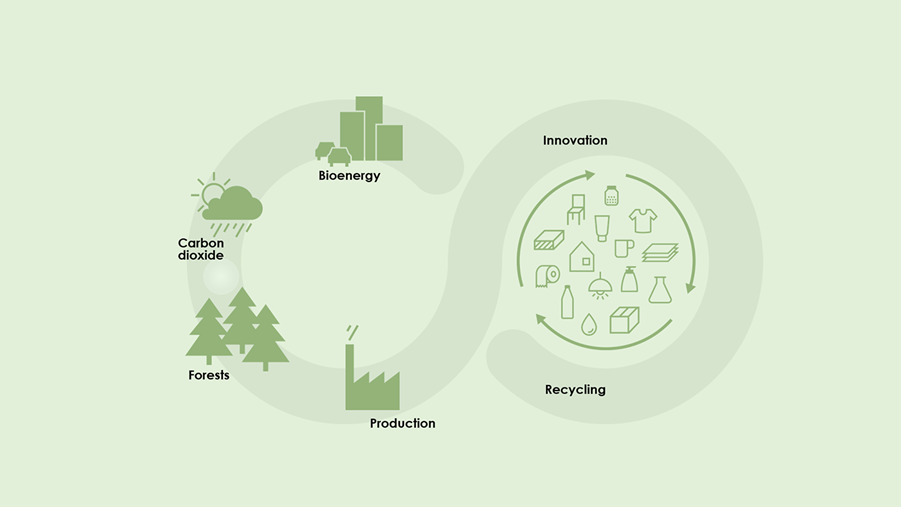
On the 23 April, the European Parliament gave its final consent to the agreement on the Ecodesign for Sustainable Products Regulation (ESPR) which aims to make sustainable products the norm in the European Union.
“This is an ambitious and comprehensive framework for products within the EU. As an industry based on renewable resources, we appreciate that sustainable renewable content is acknowledged as an important parameter for more sustainable products”, says Viveka Beckeman, Director General of the Swedish Forest Industries.
Delegated acts will be developed in the upcoming implementation phase, and the extent of information needed for the Ecodesign parameters will be clarified.
“The preparation of supporting documentation for the Digital Product Passport will be crucial, as it will involve the whole value chain for all products. The documentation will also define, how the passport information should be evaluated and, ultimately, contribute to the norm of sustainable products”, says Kai-Yee Thim, Director of Product Policy at the Swedish Forest Industries.
The Council is expected to vote in May and shortly thereafter, the final legislative text is expected to be published in the OJEU.
The Commission will adopt an ESPR Working plan within nine months of the introduction of the ESPR. A considerable amount of delegated acts will be developed, such as those for ecodesign requirements for specific product groups. It will be possible to provide input for the delegated act process through the Ecodesign Forum, which will be established, and through consultations.
Background:
ESPR is a broadening of the scope of the current Ecodesign Directive concerning requirements and range of products. The main objective of the proposals is to reduce the negative life cycle environmental impacts on almost all products and improve the function of the single market. The proposal establishes a framework to set ecodesign requirements for specific product groups to significantly improve their circularity, energy performance and other environmental sustainability aspects.
All regulated products are proposed to have a Digital Product Passport according to a set of information requirements. The aim is to make it easier to repair or recycle products and facilitate tracking substances of concern along the supply chain.
The requirements for product groups are proposed to be further developed through delegated acts and an expert group, the “Ecodesign Forum”. Furthermore, the ESPR includes measures to prevent the destruction of unsold gods.

